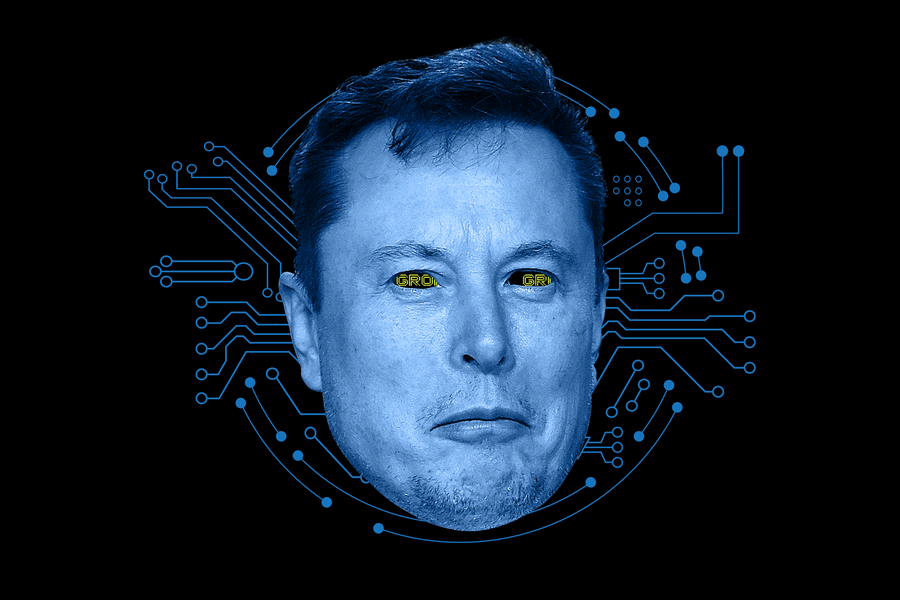Greetings, dear readers, here we are with your usual roundup of the week’s top news. This time, we’ll astonish you with news about how the European Union tamed artificial intelligence, Michael Saylor’s insatiable appetites, and delve into the parental lineage of meme coins within the crypto networks. Let’s dive in!
Previous Digest Here: Meta Tech Troubles, China’s Blockchain Push, US Election Deepfakes & Crypto for Bigwigs in Germany
European Parliament Approves Artificial Intelligence Law
The European Parliament gave final approval to the European Union’s Artificial Intelligence Act on March 13th, marking one of the world’s first comprehensive sets of rules in artificial intelligence. According to the EU Parliament’s website, the AI Act will regulate a bloc of 27 member states to ensure that “AI is trustworthy, safe, and respects the EU’s fundamental rights while fostering innovation.”
Before the vote at a virtual press conference, members of the EU Parliament, Brando Benifei and Dragos Tudorache, addressed the press, dubbing it a “historic day on our long journey to regulate AI.”
The draft law was first proposed five years ago and gained momentum in the past year as powerful artificial intelligence models began to be developed and deployed for mass use. The Parliament reached a preliminary agreement after what Benifei called “lengthy negotiations” in December 2023, and then on February 13th, the Committees on the Internal Market and Civil Liberties voted 71 to 8 in favor of approving the preliminary agreement.
Any bans on prohibited actions will take effect in November. According to Benifei, they will become mandatory upon the law’s adoption. Besides the banned practices, Benifei explained that “at first, it won’t be fully mandatory. There’s a schedule.” According to EuroNews, the draft law will go through a second vote in April and will likely be published in the official EU journal in May.
What’s the deal with the law?
The EU’s Artificial Intelligence Act leaves room for “freely using” AI with “minimal risk,” including applications like AI-supported video games or spam filters.
Moreover, lawmakers threw in provisions about generative AI models, given the explosive rise in popularity and accessibility of AI chatbots like ChatGPT, Grok, and Gemini.

Developers of general-purpose AI models, including local EU startups and some of the big players, will need to cough up detailed summaries of the training data used for such systems and abide by EU copyright laws. Deepfake content created using AI must also be labeled according to the law as artificially processed.
Previously, the EU’s Artificial Intelligence Act faced resistance from local businesses and tech companies, who urged authorities not to overly regulate new AI technologies at the expense of innovation.
However, after the approval of the world’s first comprehensive AI law, the EU Parliament received praise from tech giant IBM in a statement by its Vice President and Chief Privacy and Trust Officer, Christina Montgomery.
It seems the EU is putting its foot down in the world of AI, ensuring that our future robot overlords play nice and respect our fundamental rights. At least now, we can all rest easy knowing that when the robots take over, they’ll be following the rules.
MicroStrategy Wants to Buy More Bitcoins, This Time for $500 Million
Software developer company MicroStrategy has announced yet another proposed private sale aiming to buy even more bitcoins. In a statement on Wednesday, the company declared its plans to offer institutional buyers $500 million worth of convertible senior notes maturing in 2031 so that the firm could acquire additional cryptocurrency.
This isn’t MicroStrategy’s first collaboration with Bitcoin. Former CEO turned chairman, Michael Saylor, claims that their crypto strategy is the best way to preserve wealth and turn a profit for shareholders.
MicroStrategy proudly holds the title of the biggest corporate Bitcoin hodler, with a treasury boasting 205,000 digital coins—worth over $15 billion at today’s prices.
Understanding Meme Coins’ Solid Ties with Their Native Networks
According to research published by the traditional financial institution Franklin Templeton, meme coins maintain a “strong” connection with their native networks. The global asset manager highlighted networks such as Solana, Ethereum, Arbitrum, Polygon, and Optimism.
While meme coins lack their inherent value and are highly volatile, Franklin Templeton claims they foster “solid relationships” with their home networks. In a brief research note, reissued this past Wednesday, the global asset management company used the Solana-based meme coin BONK as an example.
“We believe meme coins have a strong bond with their native networks. The Solana network captured a large percentage of activity across all active addresses at the same time BONK saw price growth.
Franklin Templeton outlined the activity evolution in various networks associated with meme coins, citing blockchains like Solana, Ethereum, Arbitrum, Polygon, and Optimism on their chart. “Last year saw a parabolic rise in the number of meme coins in the crypto markets,” stated the financial giant.
Franklin Templeton also mentioned that meme coins have caught the eye of some crypto traders due to low fees and the potential for quick profits, but cautioned that the tokens themselves are virtually useless. “Meme coins originated from internet memes and have no inherent value or utility.”
More Digests from HODL FM:
- Bitcoin Ordinals Boom, SBF Seeks Short Sentence, Amazon Copyright Row, Serenity Token Plummets
- Mathematics vs Bitcoin, Political Donations, MATIC Market Trends, and AI Advancements
- Metaco’s CEO Departure, US Crypto-Political Battles, 1.3 Million Token Rewards, and Celebrity Scam Scandal
So there you have it, folks! The European Union is tightening the leash on AI, ensuring our future robot overlords are well-behaved. MicroStrategy is playing a high-stakes game of Bitcoin, aiming to become the ultimate hodler, while meme coins continue tightly bound to their native networks. One thing’s for sure: in the world of tech and finance, expect the unexpected, and remember, even robots have to follow the rules… for now.
Disclaimer: All materials on this site are for informational purposes only. None of the material should be interpreted as investment advice. Please note that despite the nature of much of the material created and hosted on this website, HODL FM is not a financial reference resource and the opinions of authors and other contributors are their own and should not be taken as financial advice. If you require advice of this sort, HODL FM strongly recommends contacting a qualified industry professional.







